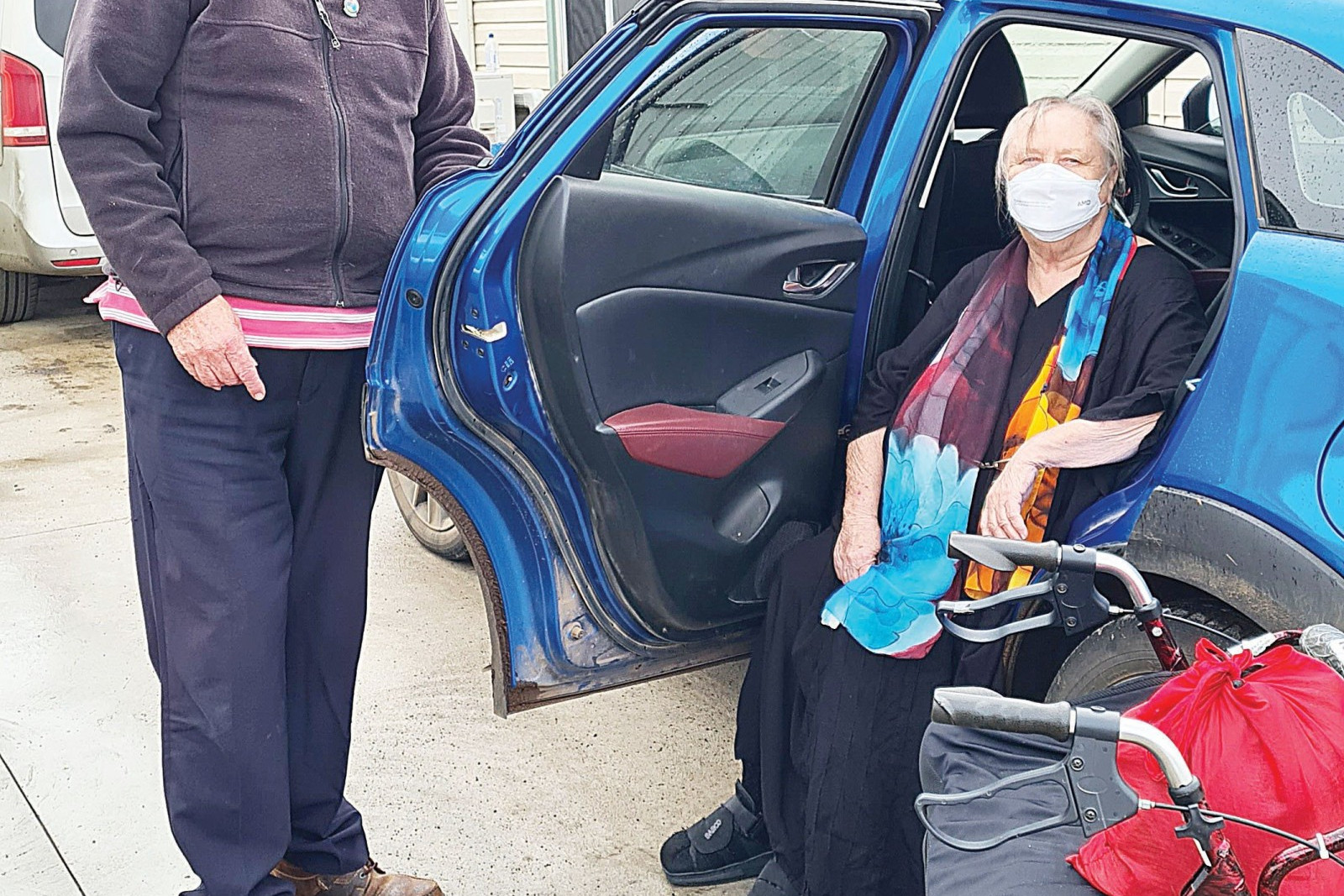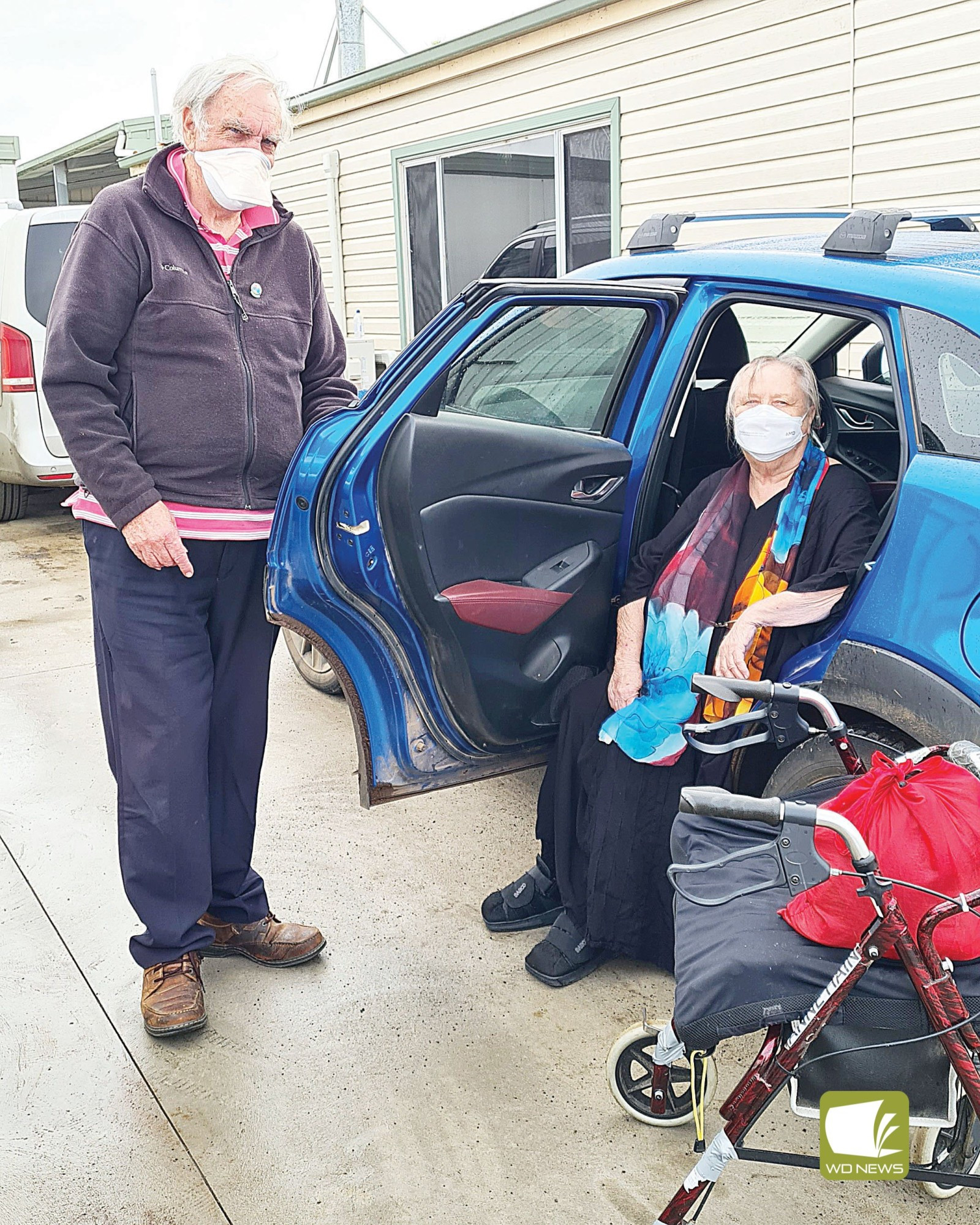General News
12 September, 2023
Anne’s positive outlook on life
SUNDAY’S and Monday’s are Anne Hain’s favourite days of the week as these are the two consecutive days she can stay home with her family and does not have to travel to Warrnambool for dialysis.


SUNDAY’S and Monday’s are Anne Hain’s favourite days of the week as these are the two consecutive days she can stay home with her family and does not have to travel to Warrnambool for dialysis.
Anne started her dialysis treatment in Melbourne about two-and-a-half years ago during the COVID pandemic when, after various other procedures, her kidney function was not improving and dialysis was the only other option.
Living in New South Wales, the plan was for her to spend time in the Timboon district for a little while to help out her daughter, Bronwyn, with the arrival of Georgie, Anne’s second granddaughter.
This was about eight years ago and she never left. While staying with her family, Anne started to feel generally unwell, knowing something was not right.
She went to see a doctor and after lots of tests and scans, was diagnosed with end-stage kidney disease.
The kidneys act as filters for the body.
They remove waste from the blood and get rid of it via our urine.
If kidneys are not working properly, waste can build up in the blood.
With end-stage kidney disease, the kidney function declines so much that toxins start building up to high levels and fluid balance becomes a problem, resulting in fluid overload.
“I actually knew my kidneys weren’t functioning well for many years,” Anne said.
“When I was diagnosed with Type 2 Diabetes 20 years ago, I was told my kidneys were compromised.
“I should have taken more notice back then, but being in my 50s and feeling healthy, I didn’t understand what it could lead to and thought it would all be fine.”
Anne’s dialysis is a haemodialysis treatment, which involves taking blood from the body and pumping it through a dialysis machine for cleaning.
To get Anne’s blood into the dialyzer, the doctors created a fistula by joining an artery and vein in the arm.
The dialysis happens three days a week, which for Anne is on Tuesdays, Thursdays, and Saturdays, with each treatment lasting for about five to six hours.
“It’s an inconvenience, but a blessing at the same time, as it keeps me alive,” Anne said.
“Unfortunately, bad circulation and big blood pressure drops mean my dialysis can only be done at a renal unit.
“And every three months I have to go to Melbourne for fistula management and surgery on other complications caused by Type 2 diabetes.”
Almost all of Anne’s toes have been amputated, which means she has to use a walking aid and on longer distances a wheelchair.
Her vital dialysis treatment means travelling around Australia or moving back to her house in NSW are not an option now, but living in her own unit on her daughter and son-in-law’s farm being surrounded by her own family, brings Anne happiness and she is grateful for the support from her family.
“I’m so lucky that I don’t have to go through it all alone and their support is so important,” she said.
Anne’s daughter Bronwyn drives her to and from dialysis, but between the farm, raising three children and running another family business, Bronwyn needs a break, so Anne uses Community
Transport organised by Timboon and District Healthcare Service on a weekly basis.
Volunteer driver John Fox picks Anne up most of the time and the two of them have formed a close bond.
John awaits an excited welcome by Anne’s three-year-old grandson every time he picks up Anne: “Hi John. Are you here to pick up my Emi?”
“The drives with John provide some social interaction outside the family as well, as due to COVID and being immunocompromised, I haven’t been able to go shopping or have many social outings,” Anne said.
“I am a frustrated DIY person and would love to go to Bunnings to get some supplies to get projects done that I’ve got planned in my head.”
Despite her limitations, Anne remains optimistic and positive about life.
“I try to be happy and enjoy every day,” she said.
“Thankfully I’m not in pain very often and you’ve just got to do, what you’ve got to do.
“What I do want to tell others is to please take care of their health, because as my dad used to say, if you haven’t got your health, you haven’t got anything.”
Anne’s story is a timely reminder to get in touch with your health and get checked for diabetes.
To make an appointment contact the Timboon Clinic on 5558 6088, the TDHS diabetes educator on 5558 6000 or for more information visit https://www.diabetesaustralia.com.au/.